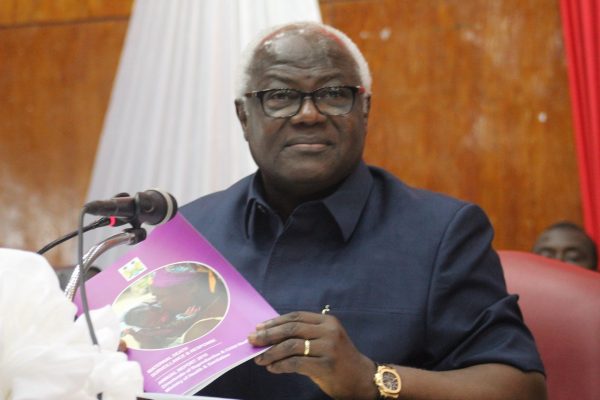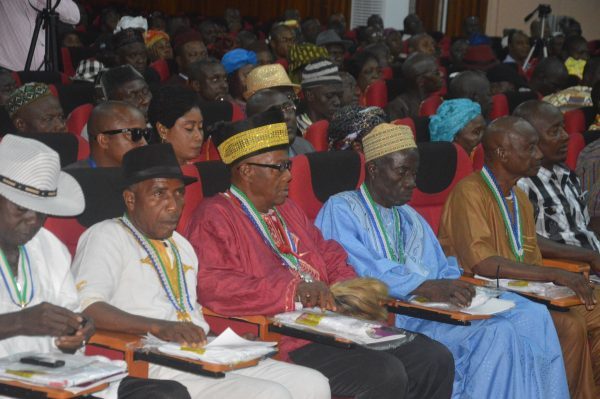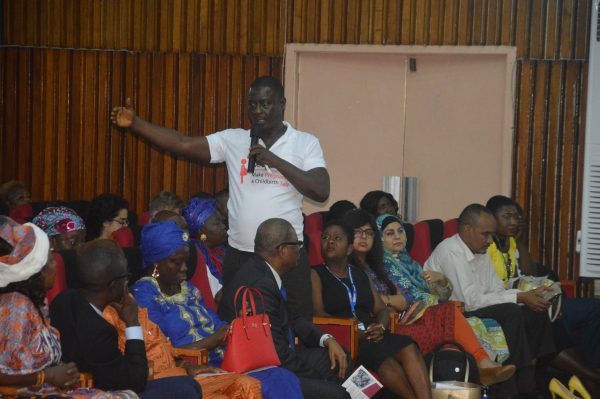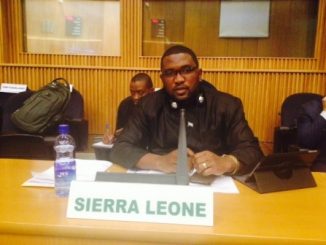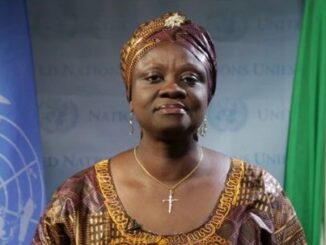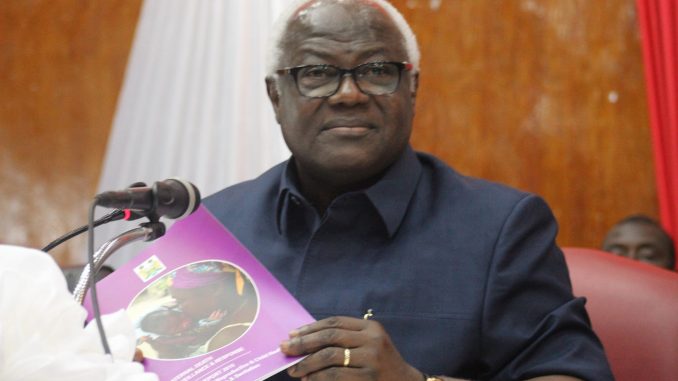
By State House Communication Unit
President Dr Ernest Bai Koroma Wednesday 31 May 2017 urged health workers, traditional and religious leaders to take necessary action to address maternal and child mortality in the country. The president made this statement during the official launch of the 2016 Maternal Death Surveillance and Response (MDSR) Report at the Miatta Conference Centre in Freetown.
Delivering his keynote address, President Koroma said that it was time to enforce the necessary measures to save the lives of mothers and urged the traditional and local authorities to play a pivotal role in enforcing the measures. He cited the integral role played by traditional leaders during the fight against the Ebola virus disease and called on them to replicate similar fighting mood exhibited during the Ebola fight. “The Chiefs and traditional leaders must report all maternal deaths in their localities, encourage their subjects to go to the nearest clinic and monitor medical supplies in every peripheral health unit in their chiefdoms,” he emphasized.
Moving forward, President Koroma said government will start signing performance contracts with Paramount Chiefs which will bolster their efforts as well as take responsibility in their various communities. He also said the MDSR report explains the problem, identifies the causes and ways to addressing them. He went on to state that government will continue to train more health workers and will soon launch the national ambulance service.
“It is good to report our own story rather than allow others to report on us,” the president said, and added that medical personnel must ensure they report the true story. He pointed out that if efforts and actions are engendered from all sides, Sierra Leone will be a shining example and move away from terrible statistics reported about the country.
Minister of Health and Sanitation, Dr Abubakarr Fofanah said the MDSR report will serve as a monitoring and evaluation framework that will significantly help to address maternal deaths in the country. According to Dr Fofanah, the hallmark of government’s commitment to addressing the issue of maternal deaths was the launching in 2010 of the Free Health Care Initiative (FHCI) by President Koroma. “We have spent a lot of resources to address the issue – time, energy and money have all been spent. But one key component of the response that we felt we have not paid adequate attention to is the M&E framework,” he said, adding that although the method of monitoring maternal deaths is not the gold standard, it is a step in the right direction. He called for effective collaboration and commitment from all sides to succeed, and disclosed the free distribution of 4.3 million bed nets across the country.
Head of UNFPA in Sierra Leone Dr Eva Kim Dickson said the report was developed to provide information to stakeholders on the current status of maternal deaths in Sierra Leone, share key challenges, and initiatives in place to avert the needless loss of maternal lives. “Most importantly, the MDSR, and this report provides us with vital data that should be used to strengthen the health systems and prevent maternal deaths,” she stressed. She further noted that maternal deaths can be prevented if appropriate action is taken. In addition, Dr Dickson highlighted the key challenges in tackling maternal deaths including under-reporting of such deaths, especially when they occur in communities, willingness to go to health facilities to deliver among others. She registered UNFPA’s commitment to supporting government to save the lives of women in Sierra Leone.

